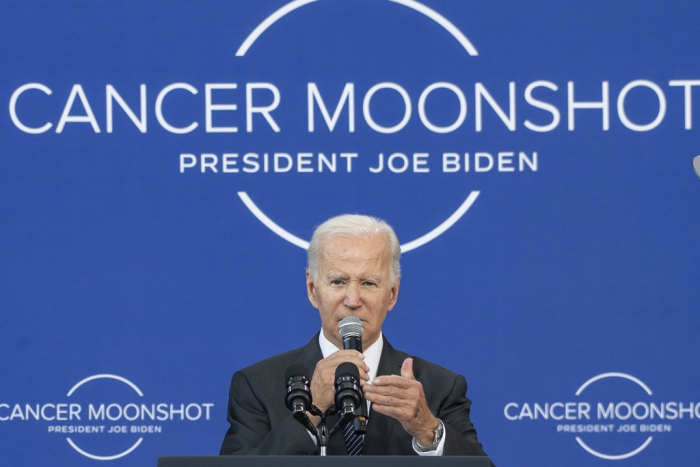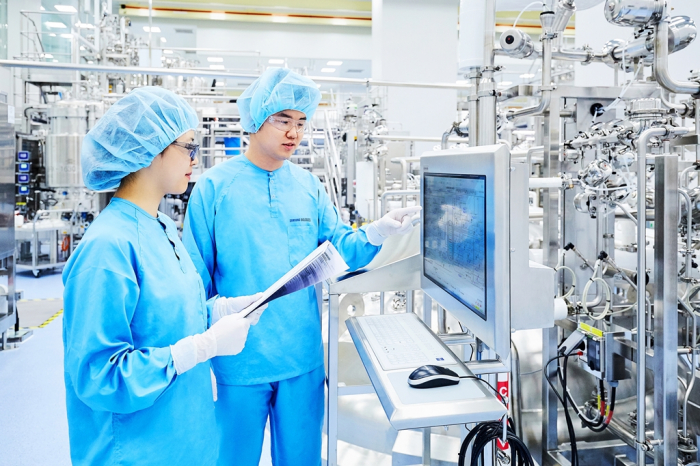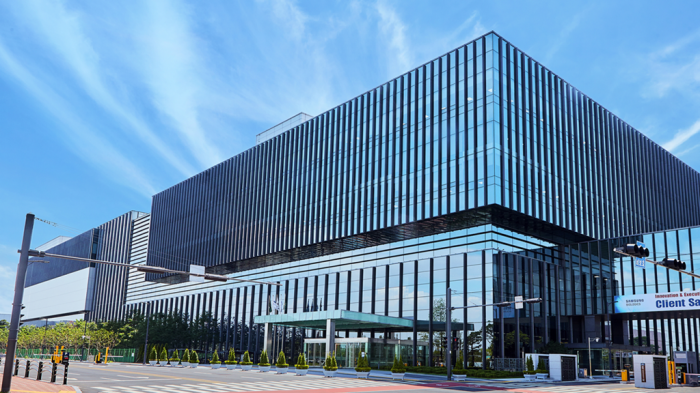Bio & Pharma
Biden’s move to beef up US bio industry poses threat to Korean firms
The US initiative could accelerate Samsung and other Korean biopharmas' US investments, analysts say
By Sep 14, 2022 (Gmt+09:00)
3
Min read
Most Read
LG Chem to sell water filter business to Glenwood PE for $692 million


KT&G eyes overseas M&A after rejecting activist fund's offer


Mirae Asset to be named Korea Post’s core real estate fund operator


StockX in merger talks with Naver’s online reseller Kream


Meritz backs half of ex-manager’s $210 mn hedge fund



President Joe Biden’s plan to support the US biomanufacturing infrastructure aimed at containing China’s clout is posing a threat to South Korean biopharmaceutical companies, which heavily rely on Korean production.
The US president’s National Biotechnology and Biomanufacturing Initiative, analysts say, could prompt Korean bio firms to accelerate their planned investments in the US to benefit from the expected government incentives.
On Monday, Biden signed an executive order laying out a strategy to bolster US biomanufacturing and reduce reliance on China for new medicines.
The White House said it will hold a meeting on Sept. 14 to discuss the initiative and announce new investments in domestic research, development and production capabilities.
The move comes just a couple of weeks after Biden signed an executive order to boost domestic semiconductor, electric vehicle and battery manufacturing that’s also part of the administration’s drive to strengthen its competitiveness against China.

KOREAN BIO-INDUSTRY ON ITS TOES
Industry watchers said the US move could hit Korean companies under a contract manufacturing organization (CMO) scheme, which mostly export their products made at production facilities in Korea.
Samsung Biologics Co., the world’s largest contract drugmaker, has no manufacturing facilities abroad.
Its exports to US-headquartered multinational biopharmaceutical companies reached 448.6 billion won ($322 million) last year, accounting for 28.6% of its total sales revenue of 1.57 trillion won. Just two years earlier, Samsung’s US exports stood at 62.4 billion won, or 8.9% of its global sales.
Samsung and other Korean CMOs have been reluctant to build overseas plants due to higher labor costs and other financial burdens related to plant operations.
Samsung Biologics has been looking to build a manufacturing plant site in the US, having already toured potential sites in California, Washington, North Carolina and Texas.
The company is also considering acquiring a US company, according to industry sources.
“Samsung may accelerate its decision on US investments if tax breaks or other incentives are given,” said an industry official.
Lotte Biologics Co. said in May it’s acquiring Bristol Myers Squibb's (BMS) biologics plant in Syracuse, New York for $160 million to strengthen its contract development and manufacturing organization (CDMO) business in the US.

CELLTRION CLOSELY REVIEWS US BIO INITIATIVE
Korea’s leading biosimilar company Celltrion Inc. said it is closely watching developments in the US, while reassessing its North American strategy.
Just like its Korean peers, Celltrion produces most of its biosimilar products at its plants in Korea.
The company’s three key products – Truxima, a blood cancer treatment; breast cancer medication Herzuma; and Remsima, a treatment for autoimmune diseases – are manufactured at its facilities in Songdo, west of Seoul, and exported to US and other overseas markets.
In the US market, Remsima and Truxima accounted for 22.6% and 25.4%, respectively, in their respective segments in the fourth quarter.
Analysts said Korean biopharmaceutical companies could benefit from the US bio initiative as the move is largely designed to keep Chinese companies in check.
China’s Wuxi Biologics, which operates 80% of its manufacturing facilities in China, had 50.8% of its global customers in North America as of last year.
“Multinational pharmaceutical companies will likely hesitate to place orders with Wuxi if the US initiative takes effect,” said an industry official.
Write to Jae-young Han at jyhan@hankyung.com
In-Soo Nam edited this article.
More to Read
-
 Bio & PharmaKorean bio firms look to pills, patches for people who fear needles
Bio & PharmaKorean bio firms look to pills, patches for people who fear needlesAug 24, 2022 (Gmt+09:00)
2 Min read -
 Bio & PharmaCelltrion gains sales approval for biosimilar Vegzelma in Europe
Bio & PharmaCelltrion gains sales approval for biosimilar Vegzelma in EuropeAug 19, 2022 (Gmt+09:00)
2 Min read -
 PetrochemicalsLG Chem, ADM to build two bioplastics plants in Illinois
PetrochemicalsLG Chem, ADM to build two bioplastics plants in IllinoisAug 16, 2022 (Gmt+09:00)
2 Min read -
 Bio & PharmaK-bio firms embrace gene therapy CDMO as Samsung looks the other way
Bio & PharmaK-bio firms embrace gene therapy CDMO as Samsung looks the other wayAug 05, 2022 (Gmt+09:00)
3 Min read -
 Bio & PharmaSamsung Biologics to double CDMO capacity with new plants worth $5.3 bn
Bio & PharmaSamsung Biologics to double CDMO capacity with new plants worth $5.3 bnJul 18, 2022 (Gmt+09:00)
2 Min read
Comment 0
LOG IN


